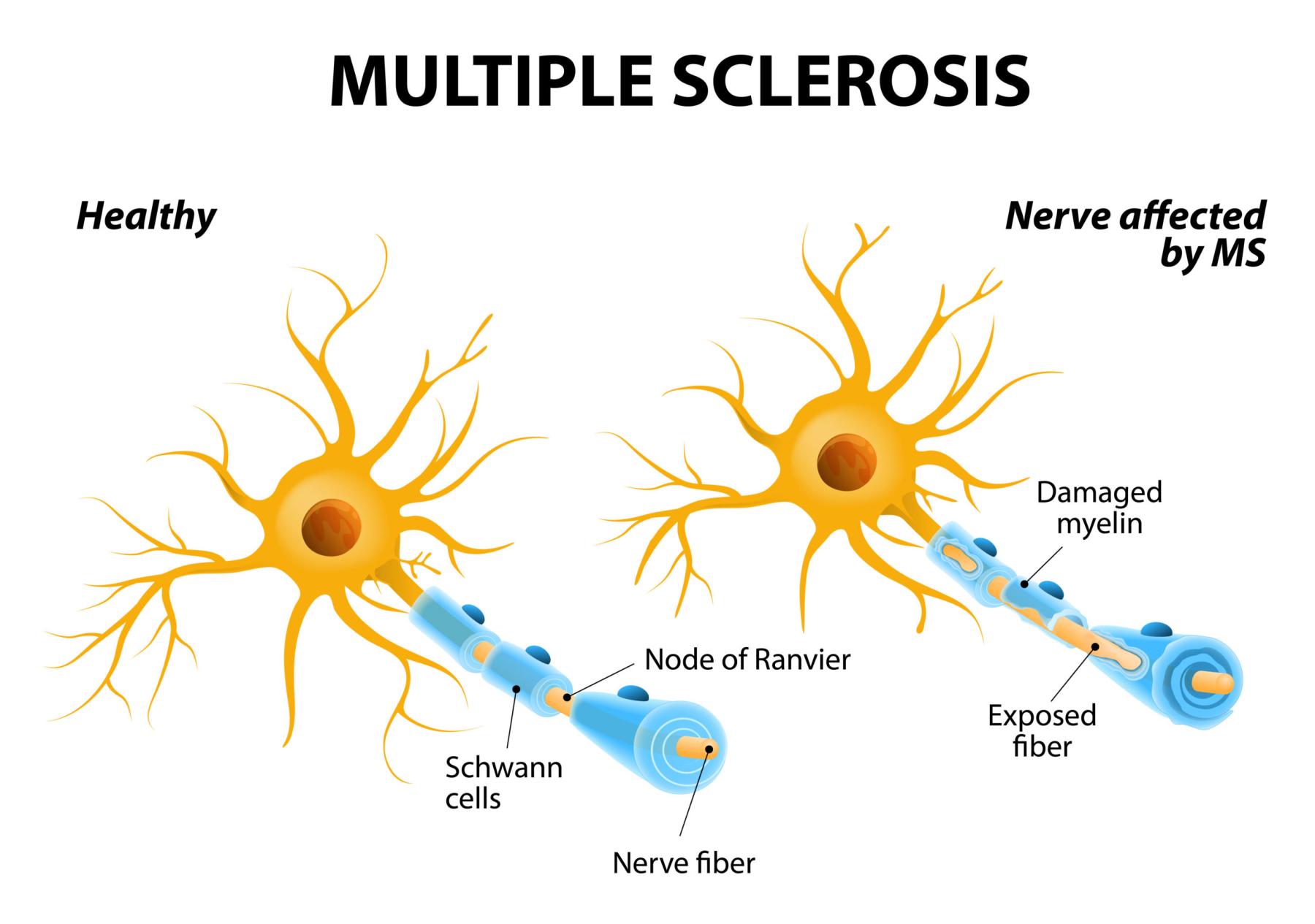Exploring Multiple Sclerosis Treatment: A Comprehensive Overview
Conventional Treatment Approaches for Multiple Sclerosis
Multiple sclerosis (MS) is a chronic autoimmune disease that affects the central nervous system, leading to a variety of symptoms. Conventional treatment options for MS aim to manage symptoms, slow disease progression, and improve quality of life. These approaches include disease-modifying therapies (DMTs), which work by modifying the immune system's response to reduce inflammation and limit damage to nerve cells.
 Disease-Modifying Therapies (DMTs)
Disease-Modifying Therapies (DMTs)
DMTs are the cornerstone of MS treatment, with several options available. These medications can be categorized into injectable, oral, and infused therapies. Injectable DMTs, such as interferons and glatiramer acetate, are administered through subcutaneous or intramuscular injections. Oral DMTs, like fingolimod and teriflunomide, offer convenience and are taken in pill form. Infused DMTs, including natalizumab and ocrelizumab, require intravenous administration and are typically reserved for more aggressive forms of MS.
Each DMT has its own unique benefits and potential side effects, which should be carefully considered in consultation with healthcare professionals. These medications can help reduce relapse rates, delay disability progression, and manage symptoms, but close monitoring is essential to ensure their effectiveness and safety.
Symptomatic Treatment and Rehabilitation
In addition to DMTs, symptomatic treatments play a crucial role in managing MS-related symptoms. Medications, such as muscle relaxants for spasticity and anticonvulsants for neuropathic pain, can provide relief and improve daily functioning. Rehabilitation therapies, including physical therapy, occupational therapy, and speech therapy, help individuals with MS enhance mobility, regain strength, and overcome challenges associated with the disease.
Emerging Therapies and Innovations
Research and development efforts are continuously expanding the treatment landscape for MS. Several emerging therapies show promise in improving outcomes and addressing unmet needs. Monoclonal antibodies, such as siponimod and ofatumumab, target specific immune cells involved in MS pathogenesis, offering more targeted and effective treatments. Stem cell transplantation, still in experimental stages, aims to rebuild the immune system and halt disease progression. Other innovative approaches being explored include neuroprotective agents and remyelination strategies.
Shared Decision-Making and Personalized Treatment Plans
As MS is a complex and heterogeneous condition, treatment decisions should be personalized based on individual characteristics, disease subtype, and preferences. Shared decision-making between individuals with MS and their healthcare providers is crucial to ensure the chosen treatment aligns with the patient's goals, lifestyle, and potential risks.
By staying informed about the latest treatment options, ongoing research, and collaborative decision-making, individuals with MS can actively participate in managing their condition and optimizing their overall well-being.
In conclusion, multiple sclerosis treatment encompasses a range of approaches, including disease-modifying therapies, symptomatic treatments, rehabilitation, and emerging therapies. Each option carries its own benefits and considerations, necessitating careful evaluation and consultation with healthcare professionals. With ongoing advancements and shared decision-making, the outlook for individuals living with MS continues to improve, offering hope for enhanced quality of life and better management of the disease.
Q&A
Q. What are the available treatments for multiple sclerosis?
A. Treatments for multiple sclerosis include disease-modifying therapies that help manage symptoms, reduce relapses, and slow down disease progression.
Q. Can multiple sclerosis be cured?
A. Currently, there is no known cure for multiple sclerosis, but treatments a
im to control symptoms, manage relapses, and improve quality of life for individuals with the condition.
Q. What are the side effects of multiple sclerosis treatments?
A. Side effects of multiple sclerosis treatments vary depending on the specific medication, but common side effects may include flu-like symptoms, injection-site reactions, and gastrointestinal issues.
Q. Are there alternative or complementary treatments for multiple sclerosis?
A. Some individuals with multiple sclerosis explore alternative or complementary treatments such as acupuncture, yoga, or dietary modifications, but it's important to discuss these options with a healthcare professional to ensure safety and effectiveness.
Q. How can I manage multiple sclerosis symptoms at home?
A. Managing multiple sclerosis symptoms at home may involve strategies such as regular exercise, maintaining a healthy diet, managing stress, getting enough rest, and seeking support from healthcare professionals and support groups.
We are associated with experienced and highly skilled medical professionals. We use the latest medical technology available in the world and we provide medical services in collaboration with JCI & NABH Certified hospitals only. Our services include various types of treatment and organ restructuring and transplant.
